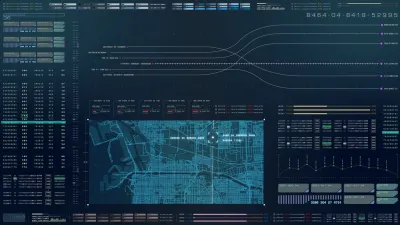Many students choose planning over business school because they want to serve the public and change the world. However, saving the world is a complicated task. What kind of school will prepare you? As in many parts of life there isn’t a simple answer but a few key points can help frame your search. And remember, you don’t need to answer all these questions before you apply—get a good enough list and then investigate them some more once you have real offers.
Many students choose planning over business school because they want to serve the public and change the world. However, saving the world is a complicated task. What kind of school will prepare you? As in many parts of life there isn't a simple answer but a few key points can help frame your search. And remember, you don't need to answer all these questions before you apply-get a good enough list and then investigate them some more once you have real offers.
Saving the world involves answering questions within questions and when you start your graduate education you may not know where it will lead you. Find a school that can provide some depth in a variety of topics-among faculty, courses, and other students-along with the flexibility to let you leave the department. Too many compulsory courses can tie you down-the negative weight of requirements. Perhaps more important, however, is the positive potential of a university where you can explore issues beyond the planning program-urban forestry, social movements, energy policy, mediation, political economy, whatever. A strong university is as important as a strong planning program. Find somewhere you can grow.
Defining the shape of the good city or region is a difficult question because there are competing definitions of "good"-efficiency, growth, conservation, culture, equity, beauty, and improving the general prospects of the planet. As you apply, and when you visit after being admitted, make sure those questions are being asked and not only in classes but by student groups, through lectures and conferences, in workshop and internships. Go somewhere that will challenge the fundamentals of planning: does it merely patch up problems so the powerful can continue to do their thing? is it essentially anthropocentric and unable to heal the planet? However, it is also crucial to find somewhere that can give you a sense of what is possible.
Incompetence is typically not the best strategy for changing the world for the better, so gaining solid skills matters. Certainly the skills of defining problems, analyzing situations, making plans, implementing strategies, and evaluating who won and lost are important. But study after study shows the top skill people seek in planners is communication (and that has some loose relation to overall competence). Communication is not one way-it involves many linked activities including listening, questioning, negotiating, interpreting, visualizing, presenting, understanding, and much more. Is it a school where you can practice this? While it is a practical skill, it involves politics and theory: Who communicates? How? How much? When? From what political or ethical or theoretical perspectives? When choosing schools try to find somewhere where those questions are asked.
Many students also look for schools where they can build practical skills and get a chance to try things out in the real world in classes, internships, and volunteer work. That's important if you have an undergraduate degree in poetry or genetics and only a few internships worth of practice experience. However, if you have been practicing as a planner for a few years you may instead be looking for high level technical skills, advanced history, or sophisticated theoretical inquiry. Make sure your needs for both practice and academic skills can be met and that you will be pushed to learn new things.
Finally, changing the world is a life's work and you'll need partners along the way. Once you get the offer ask to talk with students and alumni and find out if they found such partners at the program. Was the core curriculum large enough so that they had a common experience? Did they like each other? Did they share a vision of public service? Is this a place where you can find your own partners for the future?
In June I pointed to organizations providing networks for those wanting to change the world. For more on practical issues of deciding among schools see my February blog. In August I gave tips about the logistics of finding and applying to graduate schools.

Alabama: Trump Terminates Settlements for Black Communities Harmed By Raw Sewage
Trump deemed the landmark civil rights agreement “illegal DEI and environmental justice policy.”

Planetizen Federal Action Tracker
A weekly monitor of how Trump’s orders and actions are impacting planners and planning in America.

The 120 Year Old Tiny Home Villages That Sheltered San Francisco’s Earthquake Refugees
More than a century ago, San Francisco mobilized to house thousands of residents displaced by the 1906 earthquake. Could their strategy offer a model for the present?

Rural Population Grew Again in 2024
Americans continued to move to smaller towns and cities, resulting in a fourth straight year of growth in rural areas.

Safe Streets Grants: What to Know
This year’s round of Safe Streets for All grant criteria come with some changes.

Rural Missouri Transit Service Could Lose State Funding
OATS Transit offers low-cost rides to primarily elderly rural residents with little or no access to other transportation options.
Urban Design for Planners 1: Software Tools
This six-course series explores essential urban design concepts using open source software and equips planners with the tools they need to participate fully in the urban design process.
Planning for Universal Design
Learn the tools for implementing Universal Design in planning regulations.
Clanton & Associates, Inc.
Jessamine County Fiscal Court
Institute for Housing and Urban Development Studies (IHS)
City of Grandview
Harvard GSD Executive Education
Toledo-Lucas County Plan Commissions
Salt Lake City
NYU Wagner Graduate School of Public Service






























